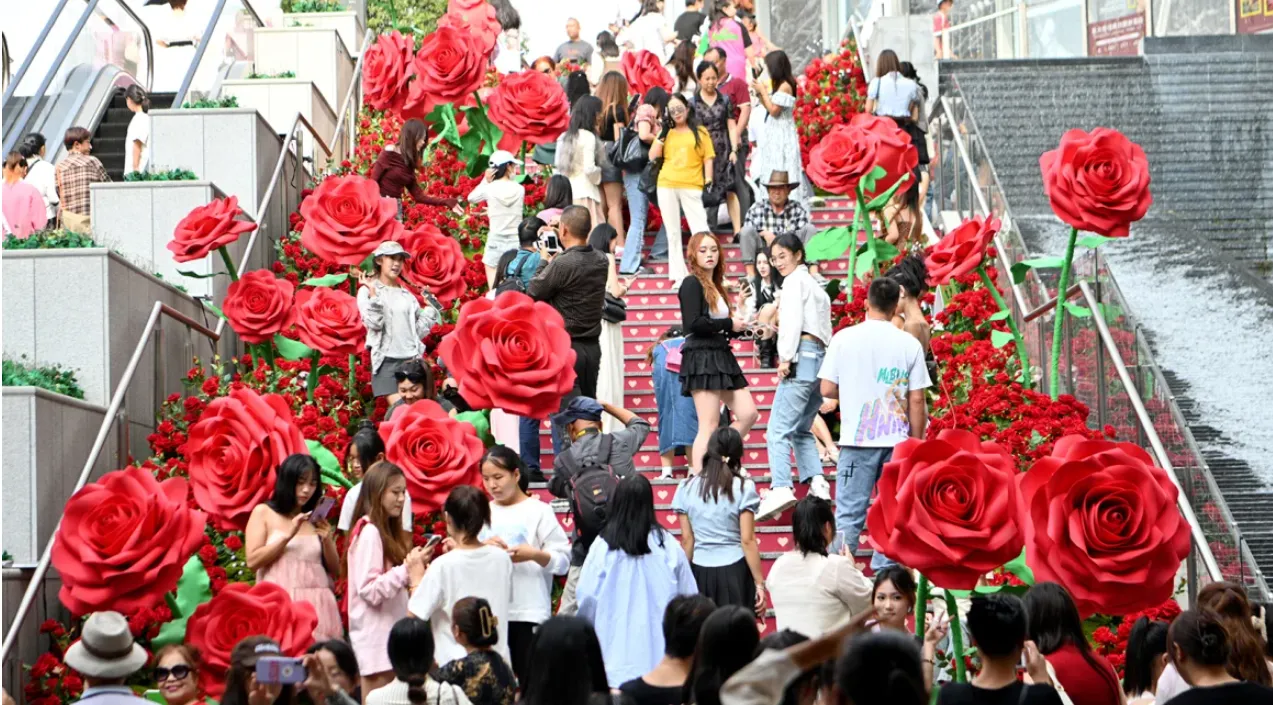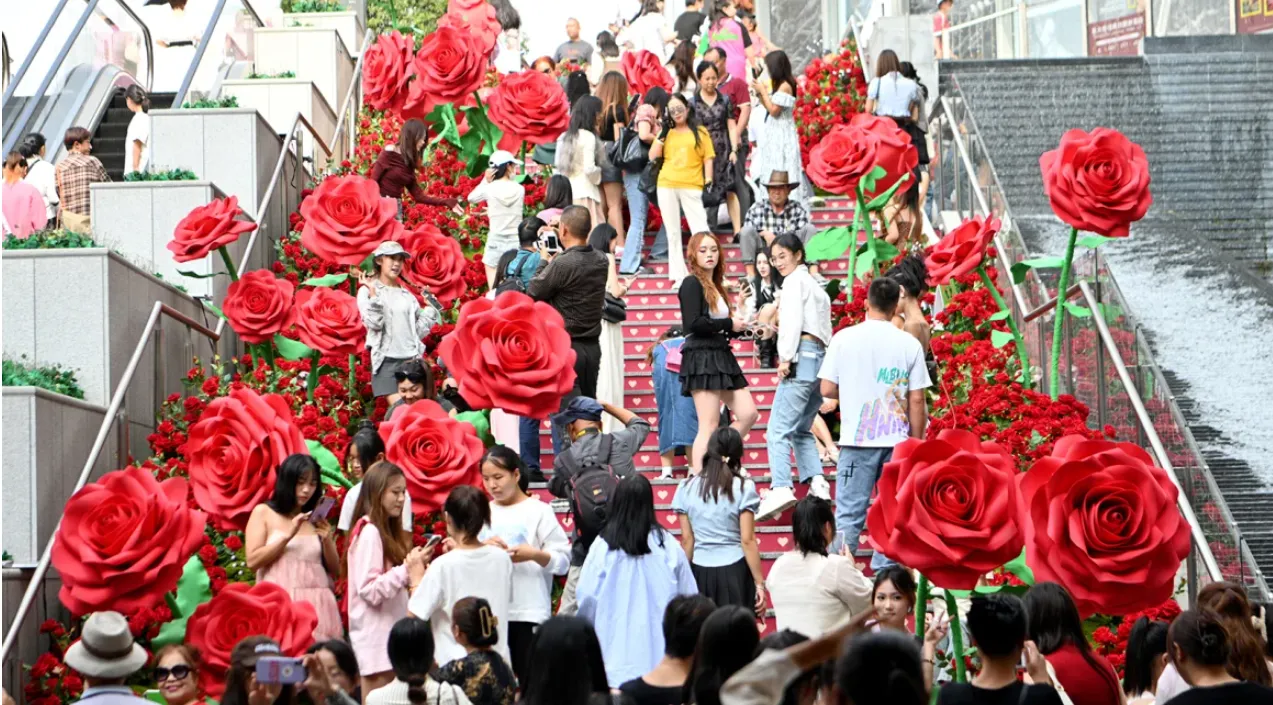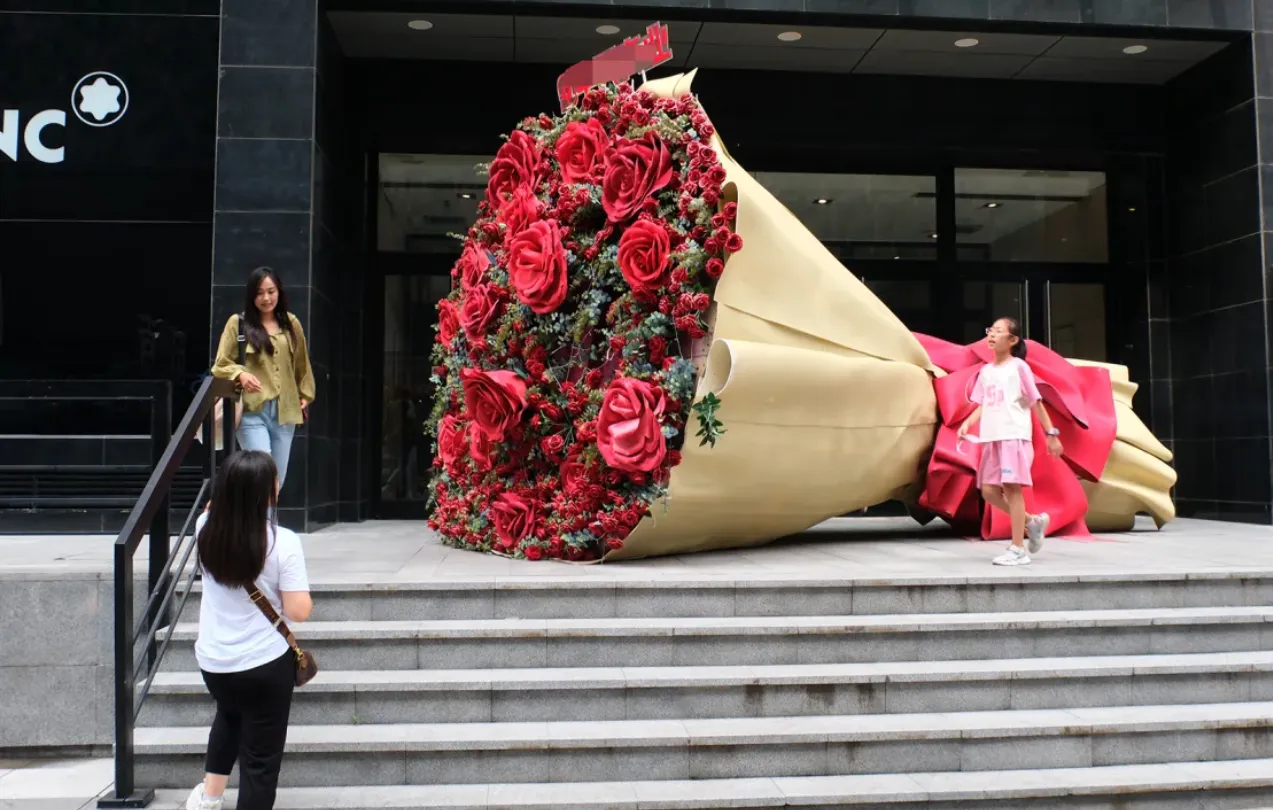Young People in China Are Spending Less on Romance: Why It Matters

Young People in China Are Spending Less on Romance: Why It Matters

In the past, the Qixi Festival in China, celebrated as a day of love and loyalty similar to Valentine’s Day, was a time when young couples would be seen carrying lavish bouquets of roses, exchanging luxurious gifts, and dining at high-end restaurants. This festival, typically held in July or August, coincided with China’s rapid economic growth, a time when consumer spending was strong. However, this year’s Qixi Festival tells a different story.
Instead of displaying grand gestures of affection, many young people took to social media to express concerns about the lack of gift-giving and festive spirit. The sluggish economy and challenging job market have significantly impacted consumer behavior. The hashtag “consumption plummets on Chinese Valentine’s Day. Are young people unwilling to pay the love tax?” became a top trend on the Weibo platform, garnering 200 million views. Comments on social media lamented the desolate atmosphere compared to previous years, highlighting the broader economic challenges facing the country.
The downturn in spending during Qixi reflects a broader trend of weak consumer confidence in China. Young people, who once fueled the festival’s economic boom, are now cautious about their spending due to difficulties in finding employment. Alfred Wu, an associate professor at the Lee Kuan Yew School of Public Policy, noted that this cautious sentiment has become widespread, extending beyond just one festival.

This shift in spending habits is concerning for both global businesses and the Chinese government. Companies like L’Oreal and Volkswagen have expressed concerns over weak demand in China, as consumer confidence remains low. The Chinese government is also worried, as it tries to encourage marriage to address declining birth rates and an aging population. However, the number of marriages has dropped significantly, with only 3.43 million couples marrying in the first half of 2024, half the number from a decade ago.
Efforts to promote family values, such as state broadcaster CCTV’s video featuring rare family portraits of Xi Jinping and his family, have not resonated with the public. Many young people cite financial burdens and demanding work hours, often referred to as “996” and “007” schedules, as barriers to starting a family. These terms describe the grueling work culture where employees work from 9 a.m. to 9 p.m., six days a week, or even every day, leaving little time for personal lives.
Economic data also supports the narrative of decreased consumer confidence. Imports of jewelry-grade diamonds fell by 28% in the first half of the year compared to 2023. Diamond supplier De Beers attributed the ongoing economic challenges in China as a reason for the delayed recovery from a sharp decline last year. Furthermore, China’s foreign direct investment dropped by nearly $15 billion in the April to June quarter, indicating capital outflows.

Qixi Festival, celebrated for thousands of years on the seventh day of the seventh month in the lunar calendar, has historically been an opportunity for companies to market their products. However, the current economic climate has changed this dynamic. Nicolas Hieronimus, CEO of L’Oreal, noted that China’s low consumer confidence is impacting global growth in the beauty sector. Advertising agency WPP reported a significant revenue drop in China, and both Volkswagen and Mercedes have expressed similar concerns.
As China grapples with these economic challenges, it remains unclear how long it will take for consumer sentiment to recover. The current situation underscores the importance of consumer confidence in driving economic growth and the challenges faced by both businesses and policymakers in reviving spending in the world’s second-largest economy.






